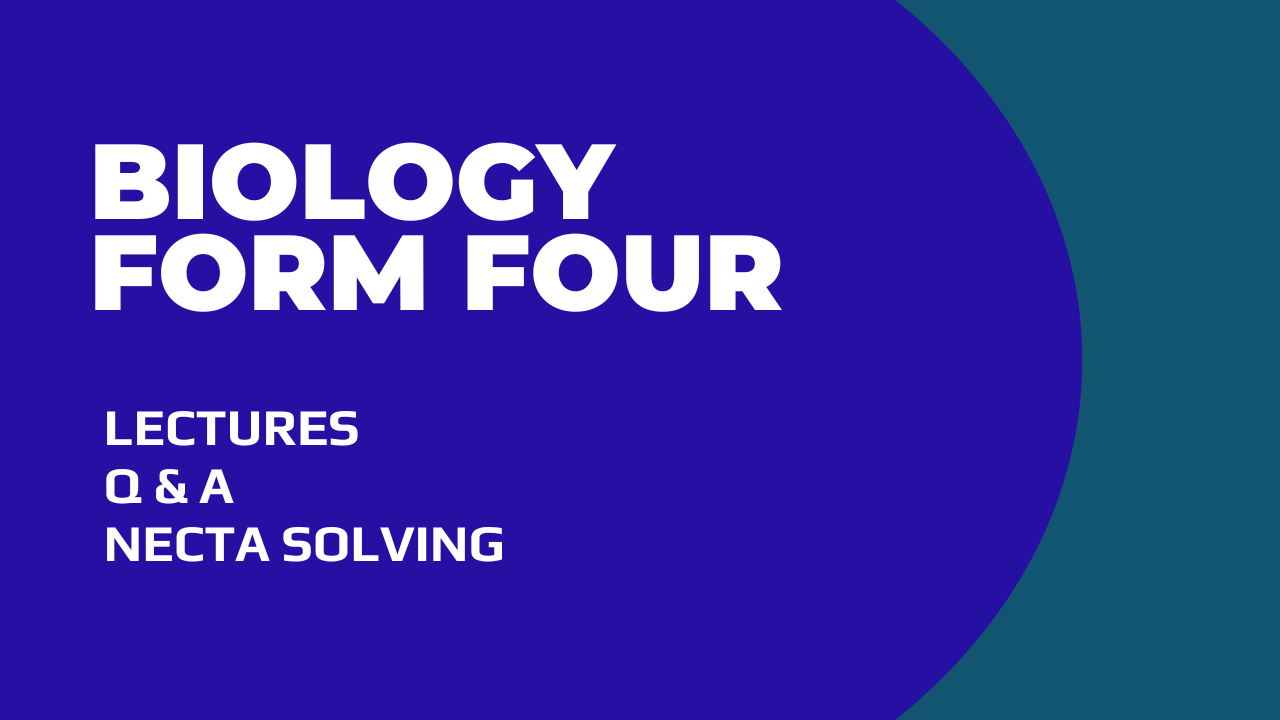Upon completing the Biology Form Four course on Edukea, students should achieve the following outcomes:
1. Comprehensive Knowledge of Human Physiology
- Students will understand the structure, function, and interactions of major body systems (e.g., circulatory, respiratory, nervous), including how they maintain homeostasis.
2. Understanding of Genetics and Heredity
- Students will be able to explain genetic inheritance, DNA structure, and the causes and effects of genetic mutations, with the ability to analyze simple genetic crosses.
3. In-Depth Knowledge of Reproduction
- Students will understand human reproductive anatomy, the process of fertilization, and developmental stages, as well as reproduction in other organisms.
4. Grasp of Evolutionary Concepts
- Students will gain insight into evolution, natural selection, and adaptation, with examples of how organisms adapt to their environments.
5. Ecological Literacy
- Students will understand ecosystems, energy flow, food chains, and human impacts on the environment, including strategies for conservation and biodiversity.
6. Health Awareness
- Students will recognize common infectious and non-infectious diseases, understand their prevention and treatment, and appreciate the importance of public health.
7. Practical and Analytical Skills
- Through experiments and observations, students will enhance their skills in scientific inquiry, data analysis, and interpretation, preparing them for advanced biology studies and real-world applications.
8. Exam Preparedness
- Students will be well-prepared for the NECTA examination, equipped with the theoretical knowledge and practical skills required for success.
These outcomes will provide students with a solid foundation for further studies in biology and health sciences and enable them to apply biological knowledge to everyday situations.
To succeed in the Biology Form Four course on Edukea, students should meet the following requirements:
1. Solid Foundation in Biology
- A comprehensive understanding of Form Three Biology topics, such as cell biology, ecology basics, and introductory human physiology, is essential for grasping the more advanced concepts in Form Four.
2. Access to Learning Materials
- Access to the Edukea platform for interactive lessons, resources, and assignments.
- A biology textbook and supplementary reading materials to deepen understanding and provide additional practice.
3. Laboratory Access or Virtual Labs
- Students should ideally have access to a laboratory for hands-on experience in experiments related to genetics, physiology, and ecology. Virtual lab simulations may serve as alternatives for practical skills.
4. Observation and Analytical Skills
- An ability to observe details closely, analyze information, and draw conclusions from biological data, especially in genetics and ecosystem studies.
5. Basic Mathematics Skills
- Competence in basic mathematics is helpful, particularly for analyzing data, calculating probabilities in genetics, and understanding measurements in physiology.
6. Internet Access and a Device
- A reliable internet connection and device (computer, tablet, or smartphone) for accessing Edukea's online resources and assignments.
7. Commitment to Independent Study
- A disciplined study routine for reviewing lessons, completing assignments, and preparing for the national NECTA exam. Independent study skills are crucial to mastering complex topics.
Meeting these requirements will allow students to maximize their learning and confidently prepare for their exams and future studies in biology.
The Biology Form Four course, aligned with NECTA Tanzania guidelines, prepares students with advanced biological concepts essential for academic progression and everyday life. The course focuses on human physiology, genetics, reproduction, evolution, ecology, and health.
Core Topics
-
Human Physiology: Detailed study of body systems (circulatory, respiratory, digestive, etc.) and their roles in maintaining homeostasis.
-
Genetics and Heredity: Understanding genetic principles, DNA structure, inheritance patterns, and genetic disorders.
-
Reproduction: Study of human and organismal reproduction, fertilization, development, and cell division.
-
Evolution: Introduction to natural selection, adaptation, and factors driving species diversity.
-
Ecology: Exploration of ecosystems, energy flow, ecological relationships, and human impact.
-
Health and Disease: Study of common diseases, disease prevention, immune response, and public health.
Through practical work, students enhance their skills in scientific inquiry, analysis, and critical thinking. The course emphasizes both theoretical and practical knowledge, preparing students for the NECTA examination and fostering a strong foundation in biological sciences.
